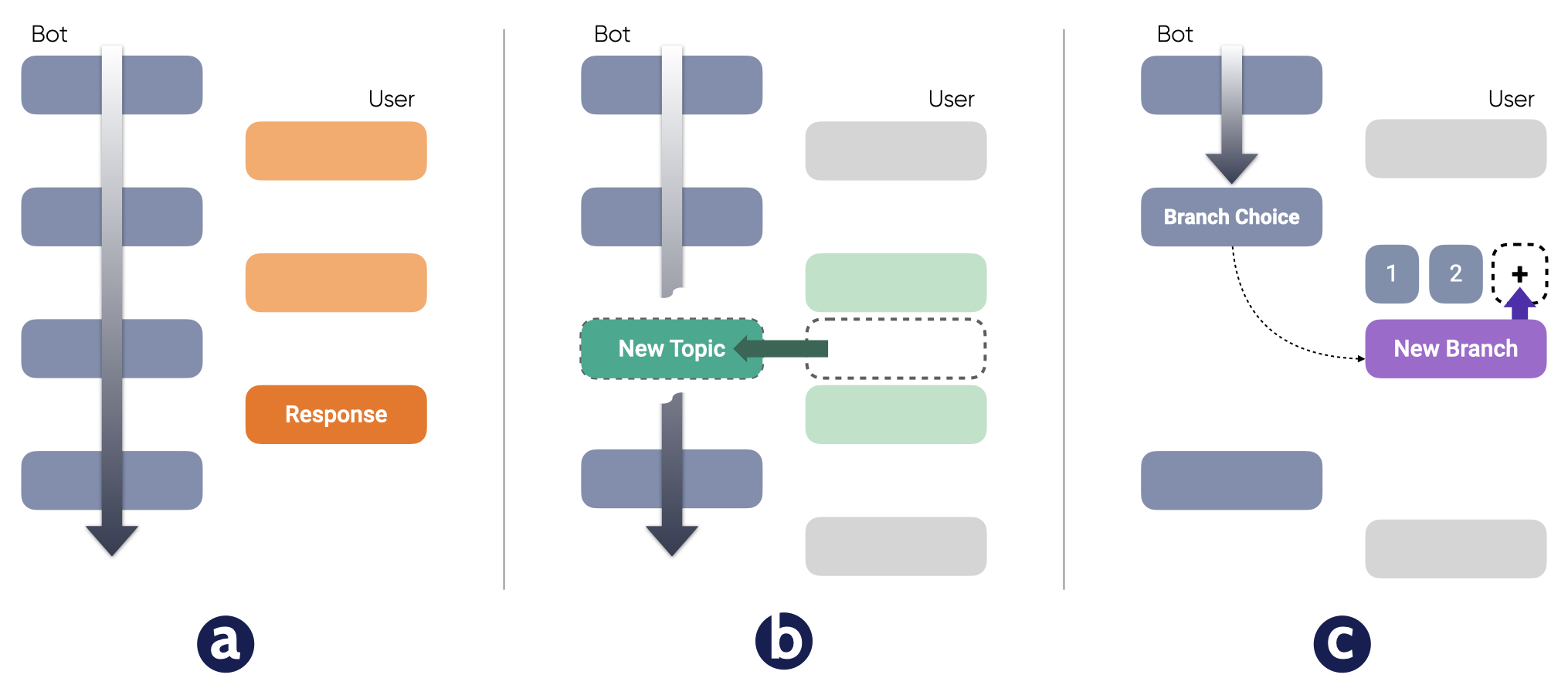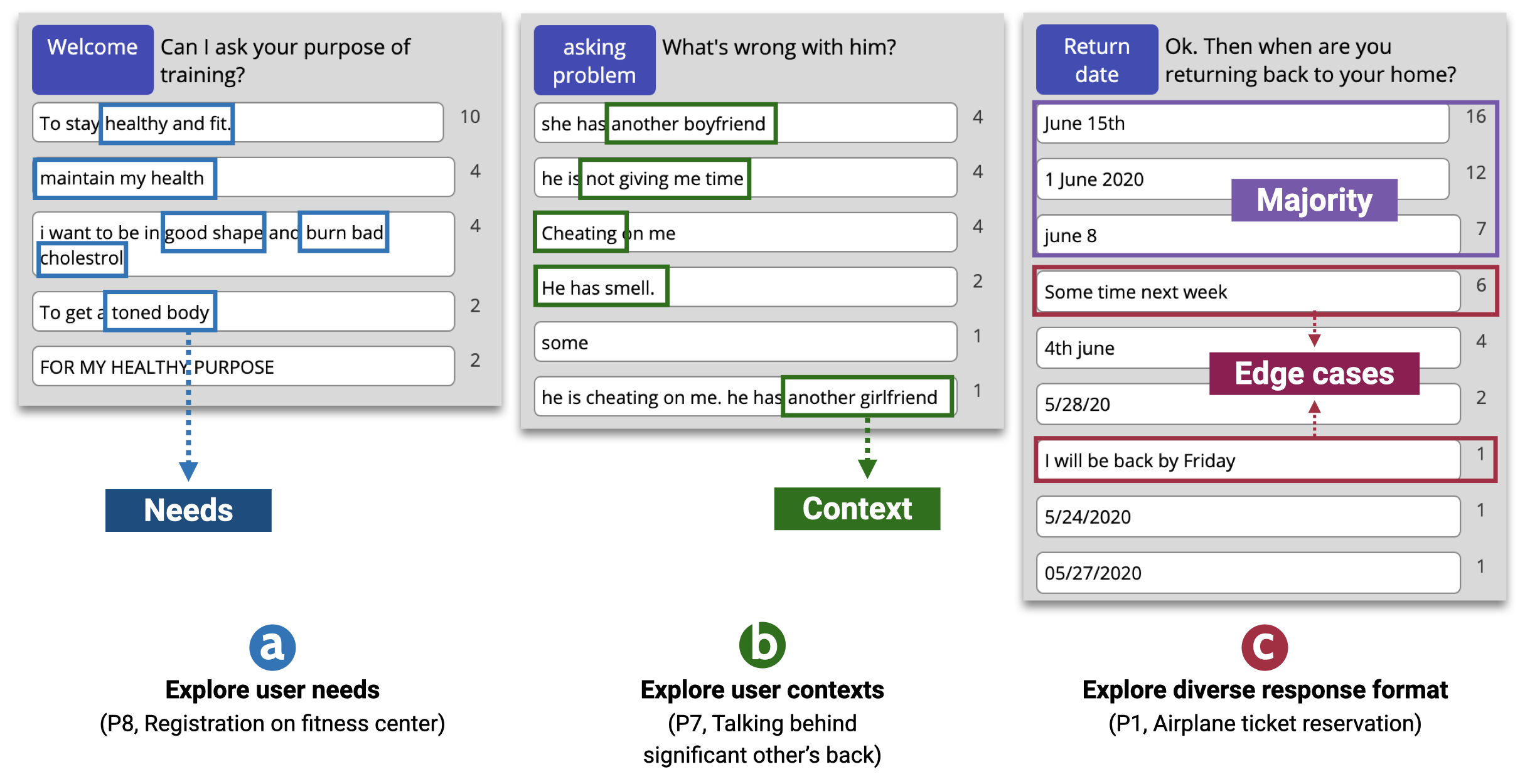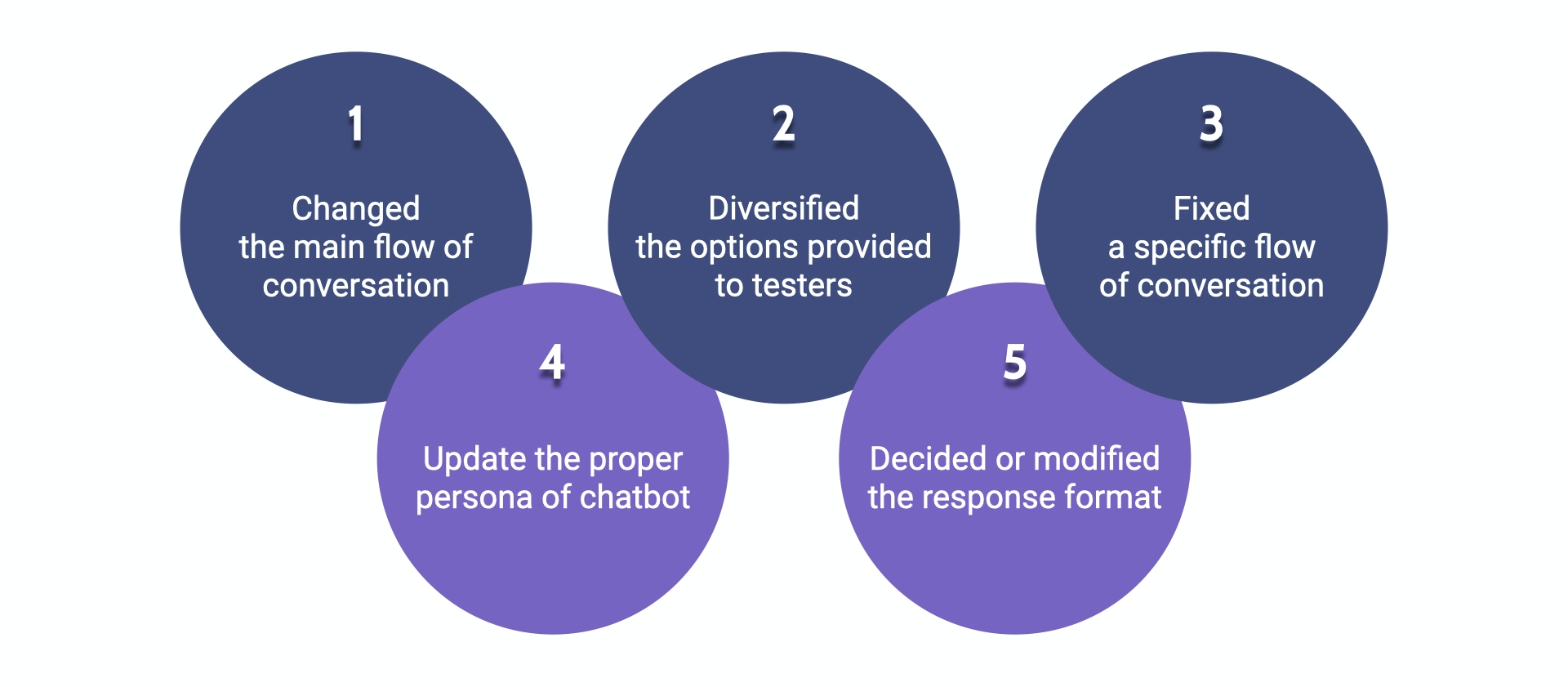ProtoChat:
Supporting the Conversation Design Process with Crowd Feedback
Abstract
Similar to a design process for designing graphical user interfaces, conversation designers often apply
an
iterative design process by defining a conversation flow, testing with users, reviewing user data, and
improving the design.
While it is possible to iterate on conversation design with existing chatbot prototyping tools, there
still
remain challenges
in recruiting participants on-demand and collecting structured feedback on specific conversational
components.
These limitations hinder designers from running rapid iterations and making informed design decisions.
We posit that involving a crowd in the conversation design process can address these challenges, and
introduce ProtoChat,
a crowd-powered chatbot design tool built to support the iterative process of conversation design.
ProtoChat
makes it easy
to recruit crowd workers to test the current conversation within the design tool. ProtoChat’s
crowd-testing
tool allows
crowd workers to provide concrete and practical feedback and suggest improvements on specific parts of
the
conversation. With the data collected from crowd-testing, ProtoChat provides multiple types of
visualizations to help designers analyze and revise their design. Through a three-day study with eight
designers, we found that ProtoChat enabled an iterative design process for designing a chatbot.
Designers
improved their design by not only modifying the conversation design itself, but also adjusting the
persona
and getting UI design implications beyond the conversation design itself. The crowd responses were
helpful
for designers to explore user needs, contexts, and diverse response formats. With ProtoChat, designers
can
successfully collect concrete evidence from the crowd and make decisions to iteratively improve their
conversation design.
System
ProtoChat supports designers to rapidly iterate on the conversation design by allowing designers to
create
conversation sequences, quickly test the designed conversation with the crowd, analyze the crowd-tested
conversation data, and revise the conversation design. These features are manifested in two main
interfaces:
the designer interface and the crowd-testing interface.
-
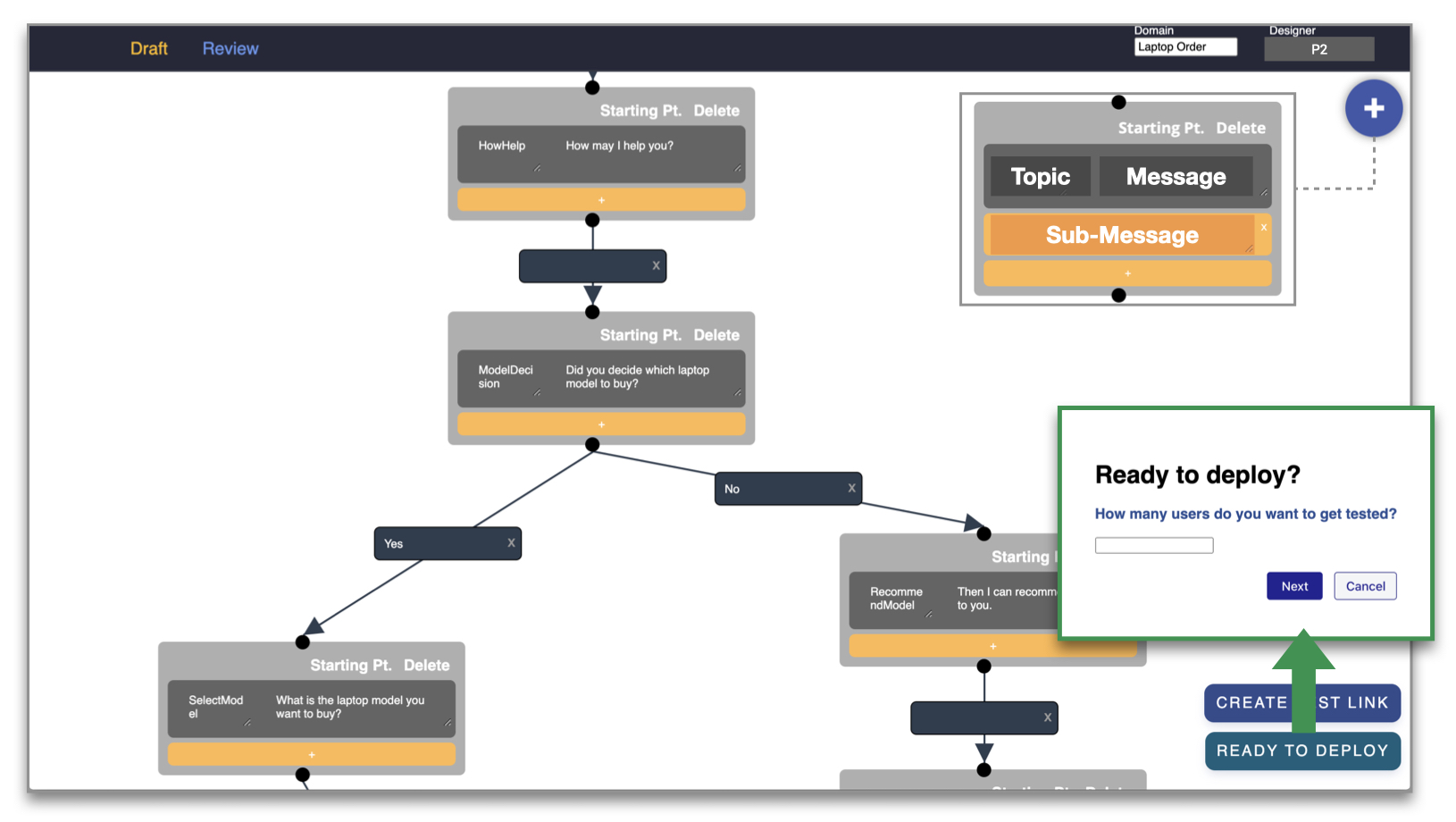
Design Interface
Designers can draft, test, and deploy their conversation.
-
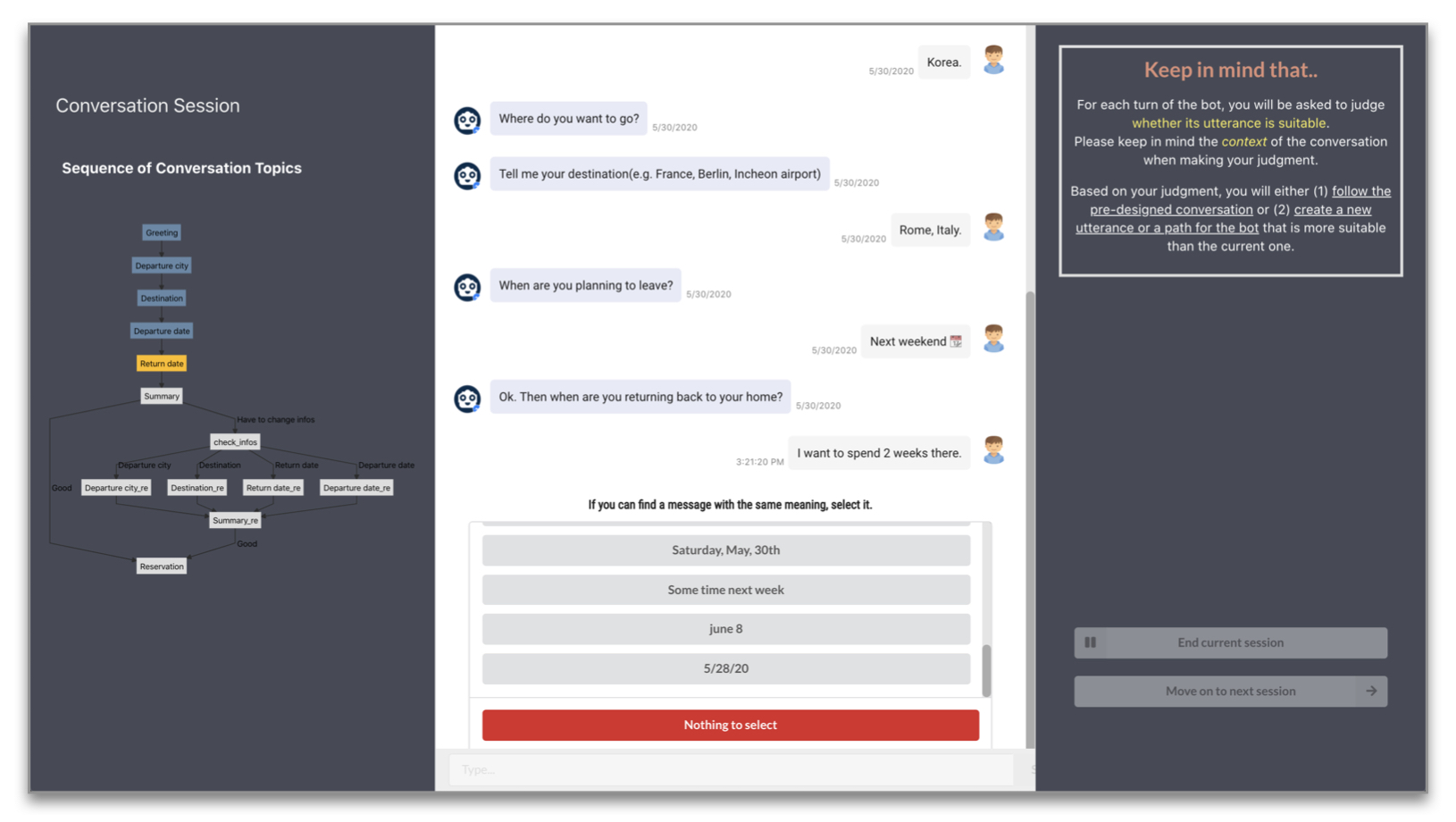
Crowd-testing interface
Crowd worker can perform three kinds of interactions within testing phase.
-
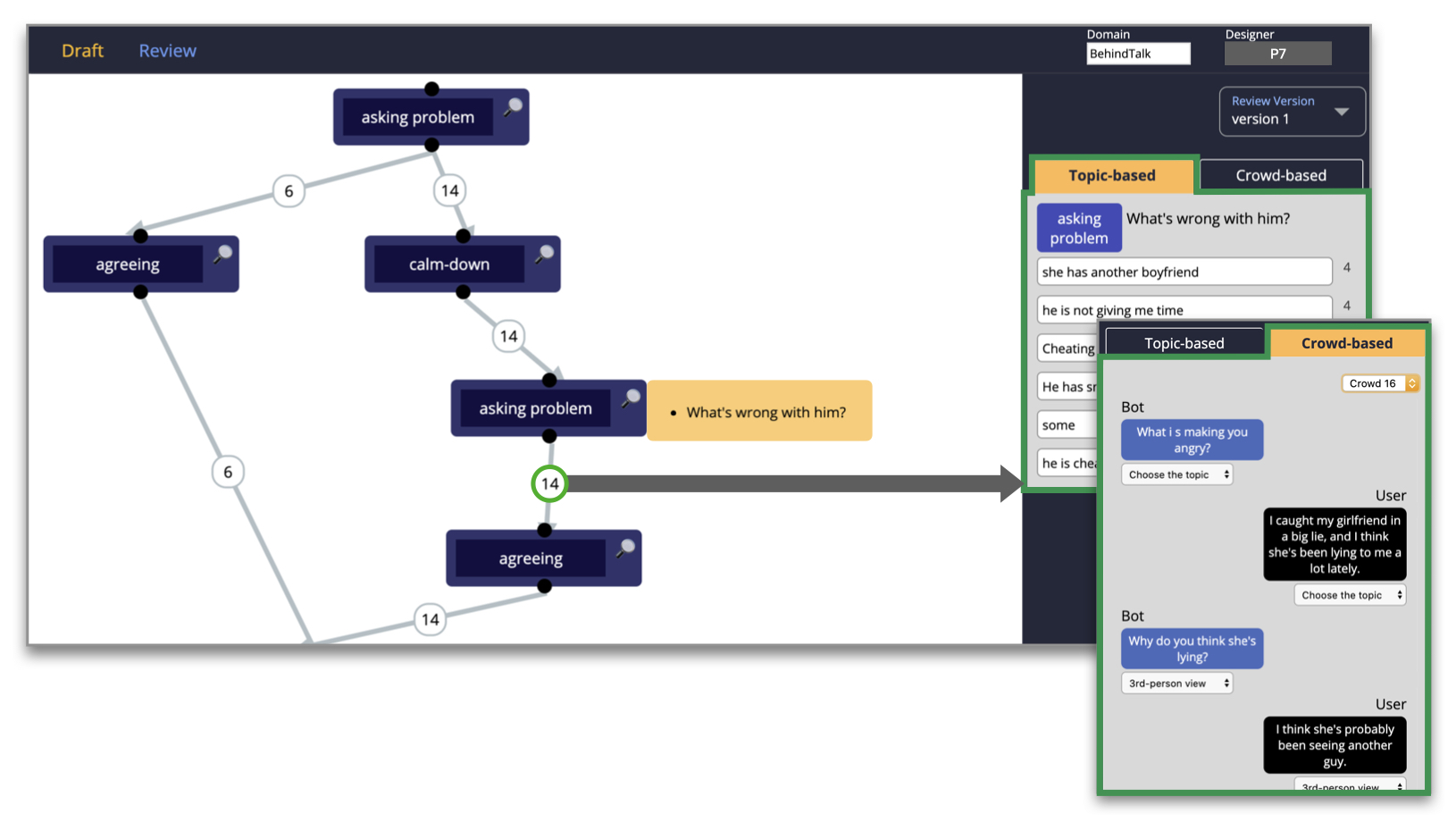
Review interface
Designers can browse and analyze the data from the crowd-testing.
Crowd Interactions
When using the crowd-testing interface, crowd workers can perform three kinds of interaction in the
designed conversation: (a) follow the conversation flow and add a user-side response, (b) add a bot-side
utterance, or (c) add a branch on the user’s side.
Result
3 patterns of analyzing crowd responses
By analyzing the crowd responses, designers could explore the user needs, contexts and diverse response
format which are essential to know for the successful conversation design.
5 design improvement patterns with collected evidence from the crowd
Designers revised their design by consulting diverse feedback and suggestions from the crowd. Revisions
occurred at both high level by changing the order of the conversation or low-level by adding options or
changing the tone of an utterance. Designers improved their conversation design with ProtoChat in five
major patterns.
For more information, please check out our paper! Or...
Publications
CSCW 2020
ProtoChat: Supporting the Conversation Design Process with Crowd Feedback
Yoonseo Choi, Toni-Jan Keith Monserrat, Jeongeon Park, Hyungyu Shin, Nyoungwoo Lee,
Juho Kim
CSCW 2020 Demo
ProtoChat: Supporting the Conversation Design Process with Crowd Feedback
Yoonseo Choi, Toni-Jan Keith Monserrat, Jeongeon Park, Hyungyu Shin, Nyoungwoo Lee,
Juho Kim
CUI2020
CHI 2020 Workshop on CUI@CHI
Leveraging the Crowd to Support the Conversation Design Process
Yoonseo Choi, Hyungyu Shin, Toni-Jan Keith Monserrat, Nyoungwoo Lee, Jeongeon Park,
Juho Kim
CHI 2020 LBW
Supporting an Iterative Conversation Design Process
Yoonseo Choi, Hyungyu Shin, Toni-Jan Keith Monserrat, Nyoungwoo Lee, Jeongeon Park,
Juho Kim
This work was supported by Samsung Research, Samsung Electronics Co., Ltd. (IO180410-05205-01).
 Design InterfaceDesigners can draft, test, and deploy their conversation.
Design InterfaceDesigners can draft, test, and deploy their conversation. Crowd-testing interfaceCrowd worker can perform three kinds of interactions within testing phase.
Crowd-testing interfaceCrowd worker can perform three kinds of interactions within testing phase. Review interfaceDesigners can browse and analyze the data from the crowd-testing.
Review interfaceDesigners can browse and analyze the data from the crowd-testing.